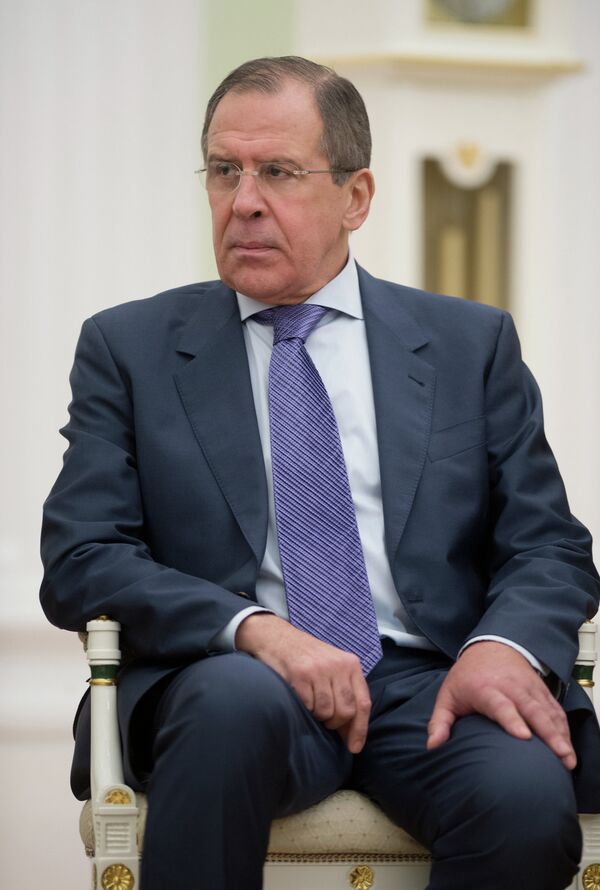Last updated at 21:44
MUNICH, February 2 (RIA Novosti) - Moscow still hopes the Syrian opposition will start negotiations with the national government, Russian Foreign Minister Sergei Lavrov said after a meeting with opposition leader Mouaz al-Khatib on the sidelines of a security conference in Munich on Saturday.
Russia welcomes al-Khatib’s recent remarks in favor of dialog with the Syrian government, Lavrov said.
“That is a very important step, considering that the coalition was based on the rejection of any contacts with the regime,” he said.
“But I hope realism will prevail,” Lavrov said.
Al-Khatib, a leader of the National Coalition of Syrian Revolutionary and Opposition Forces (SNCROF), earlier expressed his readiness to meet with Lavrov, US Vice-President Joseph Biden and UN/Arab League special envoy Lakhdar Brahimi in Munich, prompting media rumors of a four-party meeting.
On Friday, the Russian Foreign Ministry denied the four-party meeting reports, saying that “as of today, there is no such meeting mentioned in the program of the Russian foreign minister.”
The National Coalition of Syrian Revolutionary and Opposition Forces (SNCROF) was formed on November 11 in Doha, Qatar, and proclaimed itself the legitimate representative of the Syrian people. Its legitimacy has since been recognized by Western powers but questioned by Moscow.
In December Al-Khatib rejected an invitation from Russia to discuss a peaceful resolution of the Syrian crisis. In an interview with Al Jazeera television he said he wanted an apology from Moscow for its support for Syrian President Bashar al-Assad.
Lavrov also met with Brahimi, the Russian Foreign Ministry said on Saturday.
“The Russian side expressed support for the special envoy’s efforts, including within the framework of his ‘shuttle diplomacy’ to find mutually acceptable solutions for an early resolution of the Syrian crisis,” the ministry said.
Russia has faced strong international criticism over its refusal to back UN sanctions against Syria, its last ally in the Arab world, over what it calls the pro-rebel bias of some resolutions proposed by Western nations.
Syria has been locked in an increasingly bloody civil war since demonstrations broke out against President Assad in March 2011. According to UN estimates, at least 60,000 people have been killed in the 22-month-old conflict and more than 700,000 have been forced to flee Syria.


